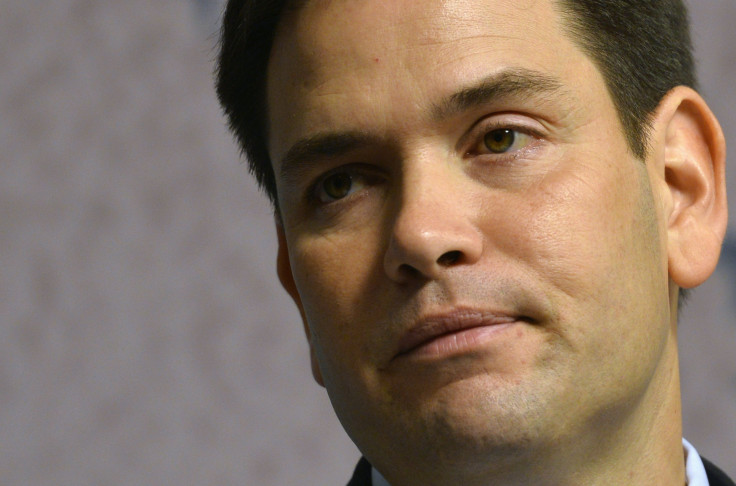Rand Paul vs. Marco Rubio: Kentucky Senator 'Has No Idea What He's Talking About' On Cuba, Florida Senator Says

Kentucky Sen. Rand Paul’s view that the trade embargo against Cuba hasn’t worked shows that the Republican “has no idea what he’s talking about,” according to his Republican colleague, Sen. Marco Rubio of Florida. Rubio’s attack on Paul, which came hours after the Kentucky senator said the president’s shift on Cuba policy was “probably a good idea,” is just the latest spat between the Republican rivals and possible 2016 GOP presidential candidates.
"In the end, I think opening up Cuba is probably a good idea," Paul told a West Virginia radio station on Thursday. "The 50-year embargo just hasn't worked. If the goal is regime change, it sure doesn't seem to be working, and probably it punishes the people more than the regime because the regime can blame the embargo for hardship."
But Rubio, the son of Cuban immigrants, suggested on Fox News on Thursday that Paul is ignorant about Cuba. “Like many people who have been opining, he has no idea what he’s talking about,” Rubio said. You can watch Rubio’s full exchange with Fox News’ Megyn Kelly here.
The Republicans' disagreements were also on display earlier this month, when both Rubio and Paul walked out of a Senate committee hearing while the other was giving remarks on foreign policy, an area that represents the biggest contrast between the two. Rubio is among the most hawkish members of the Senate, while Paul is outspoken about being against American military intervention.
The feud was also on in September, when Rubio criticized Paul for being skeptical about the effectiveness of U.S. airstrikes on the Islamic State group in June and accusing his Senate colleague of posturing for 2016. Paul eventually voted for the airstrikes. "Some who aspire to be president have shown they would rather wait for poll numbers to change than demonstrate the leadership necessary to shape them," Rubio told a crowd in Washington, D.C., in a thinly veiled reference to Paul, according to Bloomberg.
© Copyright IBTimes 2024. All rights reserved.












